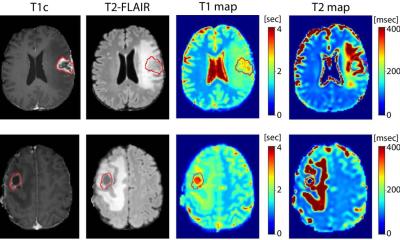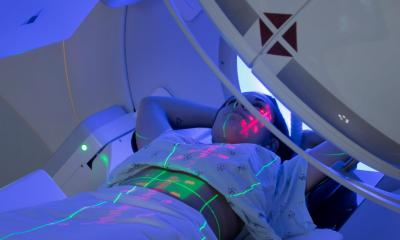Image source: Adobe Stock/Mark Kostich
News • Optional treatment
Radiotherapy: no benefits for older patients with early breast cancer
Radiotherapy does not improve survival rates in older patients with early breast cancer, new research suggests.
The addition of radiotherapy alongside breast-conserving surgery and hormone therapy – the current standard treatment – made no difference to the death rates for patients 65 years or older, according to the study, which was published in the New England Journal of Medicine (NEJM). Radiotherapy was also found to not affect the risk of secondary tumours, known as metastases. It did, however, slightly reduce the likelihood of the cancer recurring, but within the clinically acceptable range of risk.
The 10-year study, one of the first long-term clinical trials in older breast cancer patients, suggests that radiotherapy can be safely excluded when treating over 65s for early stage breast cancer, experts say. Regardless of age, the standard treatment for early breast cancer is breast-conserving surgery – sometimes called a lumpectomy – followed by radiotherapy and hormone treatment to reduce the risk of recurrence in the breast. Patients 65 years and older represent at least 50% of patients with the condition. Despite radiotherapy adding an extra burden to older patients, with side effects linked with heart problems and second cancers, there have been very few clinical trials in this age group.
Our findings will help clinicians guide older patients on whether this particular aspect of early breast cancer treatment can be omitted in a shared decision-making process, which weighs up all the risks and benefits
Ian Kunkler
Researchers from University of Edinburgh and the Western General Hospital, Edinburgh, conducted a randomized-clinical trial – called PRIME II - with 1,326 patients to investigate if radiotherapy is necessary in combination with a lumpectomy and hormone therapy. The patients were 65 years of age or older with so-called ‘low risk’ breast cancer, which means a tumour no more than 3cm in size, not involving the lymph nodes underneath the armpit and likely to respond to hormone treatment. All participants were prescribed breast-conserving surgery and at least five years of hormone therapy. Half of the group were randomly selected to have radiotherapy in addition for three to five weeks after surgery. Patients were assessed at annual clinic visits and with breast scans.
The research team found that in patients treated without radiotherapy the risk of recurrence of cancer in the treated breast after 10 years was 9.5%, while giving radiotherapy reduced the risk to 0.9%. Despite this difference in rates, both are within the accepted range of recurrence according to current clinical guidelines. There was no difference in overall survival between both groups and most deaths were due to causes other than breast cancer.
"Radiotherapy can place a heavy burden on patients, particularly older ones", said Professor Ian Kunkler, Professor of Clinical Oncology at the University of Edinburgh. "Our findings will help clinicians guide older patients on whether this particular aspect of early breast cancer treatment can be omitted in a shared decision-making process, which weighs up all the risks and benefits."
The work was supported by the Chief Scientist Office of the Scottish Government and the Breast Cancer Institute NHS Endowment Fund, Western General Hospital, Edinburgh.
Source: University of Edinburgh
16.02.2023





